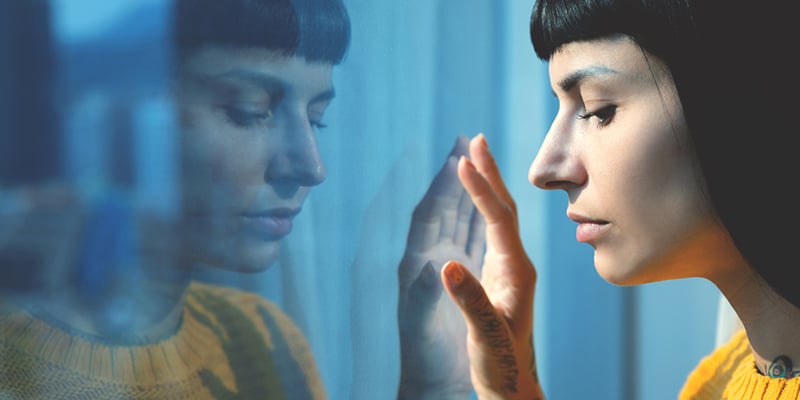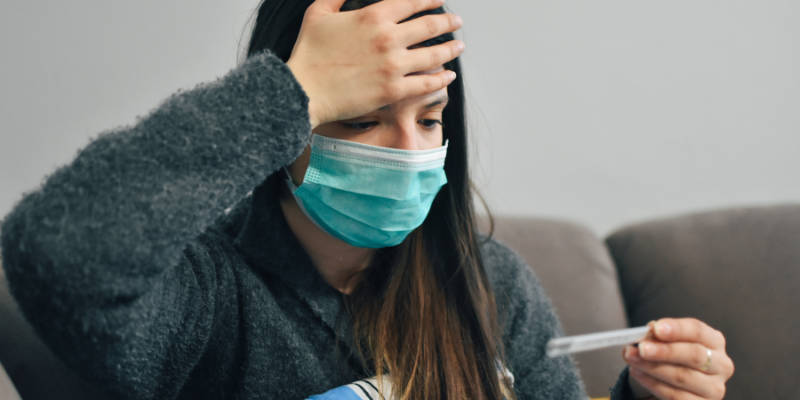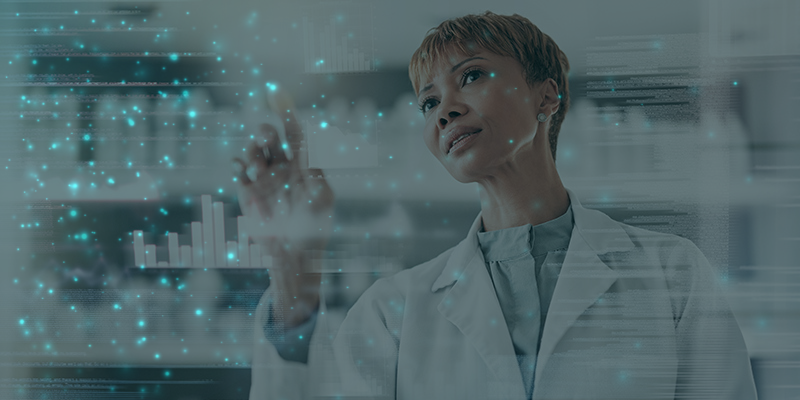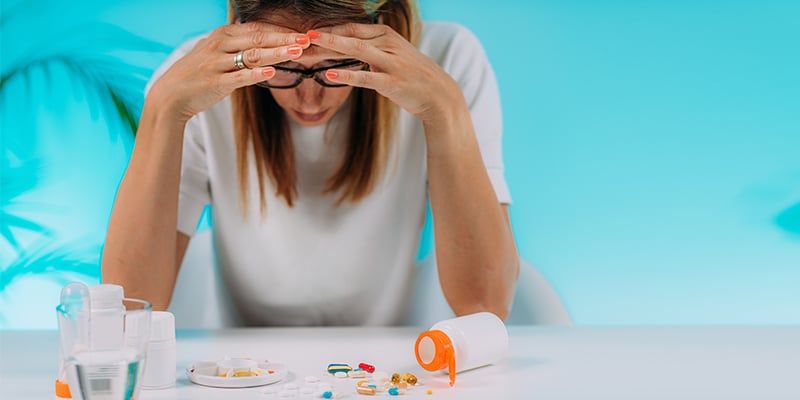
Feeling a little lonely lately? Who isn’t? All the social distancing we’ve endured the past several months has many of us feeling isolated. The consequences could be devastating. A new paper in Trends in Cognitive Sciences on the neurobiology of social distancing shows that it has serious consequences for brain health and immune system function. In fact, the authors say, “loneliness may be the most potent threat to survival and longevity.”
Why is loneliness so devastating? We are all social animals. It is hard-wired into our brains, and when we are lonely and/or disconnected from others, it can have negative physical and neurological effects.
7 TROUBLING CONSEQUENCES OF LONELINESS
1. Increased risk of Alzheimer’s disease and other dementias
Multiple studies have found that loneliness raises the chances of developing memory-related disorders. A 2018 study in The Journals of Gerontology involving data from 12,000 participants shows that loneliness increases the risk of dementia by 40%. Other research in JAMA Psychiatry suggests that people who are lonely face more than twice the risk of developing Alzheimer’s disease, the most common form of dementia.
2. Cognitive decline
As part of the U.S. Health and Retirement study, more than 8,300 adults ages 65 and older were assessed every 2 years from 1998 to 2010; researchers reported that the loneliest among them experienced cognitive decline approximately 20% faster than people who were not lonely, regardless of any other factors.
3. Psychiatric disorders
Research shows that loneliness is associated with a variety of mental health issues, including depression, substance use disorders, sleep problems, and personality disorders.
4. Heightened risk of suicide
About 10% of Americans who are 50 and older do not have a spouse, partner, or living child. This group has the highest rate of suicide and an increasing problem of drug addiction, according to a 2018 article in The Wall Street Journal.
5. Altered brain development
Social isolation at a young age can be especially harmful to brain development. In the early 1990s, thousands of Romanian infants were orphaned and warehoused without touch sometimes for years at a time. PET studies (similar to SPECT studies) of a number of these deprived children have shown marked overall decreased activity across the whole brain.
6. Physical health risks
According to meta-analyses in PlosOne and Perspective on Psychological Science, the physical health risks associated with a lack of social connections are equal to smoking 15 cigarettes a day or having an alcohol use disorder. And social isolation and loneliness have twice the harmful effects of obesity.
7. Impaired immune system
At a time like this when we all need to be shoring up our immune system to fight off COVID-19, feeling lonely doesn’t help. In fact, loneliness impairs immune system function and increases susceptibility to infections and diseases. A 2005 study in Health Psychology found that feeling lonely and having a small social circle lowers immune defense.
LONELINESS IN THE BRAIN
Can loneliness be detected in the brain? A 2020 brain imaging study in The Journal of Neuroscience from scientists at Dartmouth University has identified brain patterns associated with loneliness. The researchers analyzed clusters within the brain that activate when someone is thinking about themselves compared with thinking about others (such as close friends or celebrities).
When participants thought about someone with whom they had very close ties, the brain activated more similarly to the way it did when thinking about oneself. Specifically, activation occurred throughout the social brain, including an area called the medial prefrontal cortex that is associated with self-representation. Basically, the stronger the social connection, the more similar the brain activation.
In lonelier people, thinking about others activated a different cluster, revealing a disconnect between the self and others.
“It’s almost as if you have a specific constellation of neural activity that is activated when you think about yourself,” study author Megan Meyer says in a statement. “And when you think about your friends, much of the same constellation is recruited. If you are lonely though, you activate a fairly different constellation when you think about others than when you think about yourself. It’s as though your brain’s representation of yourself is more disconnected from other people, which is consistent with how lonely people say they feel.”
GET SOCIAL EVEN IF PHYSICALLY DISTANCED
To reduce the risk of loneliness and isolation, get involved with your family, church, or other groups online if in-person is not possible. Take an online class or find ways to volunteer as research shows that people who help care for others live longer. Grandparents who care for their grandchildren, for example, live longer, on average, than grandparents who do not.
Memory problems, depression, substance use disorders, and other mental health issues can’t wait. During these uncertain times, your mental well-being is more important than ever and waiting until life gets back to “normal” is likely to make your symptoms worsen over time.
At Amen Clinics, we’re here for you. We offer in-clinic brain scanning and appointments, as well as mental telehealth, remote clinical evaluations, and video therapy for adults, children, and couples. Find out more by speaking to a specialist today at 888-288-9834. If all our specialists are busy helping others, you can also schedule a time to talk.





I am writing to ask if a pet (social animal like dog or cat) help to better cope during the pandemic. I am concerned because I feel fine, but this article made me think about my isolation and the long term effect of being indoors all the time. I would also be concerned for the pet.
Thank you
Comment by Msafiri Makembe — August 3, 2020 @ 3:38 AM
Dear Msafiri,
I find that a pet or two absolutely does help. I don’t know what I would do without my cats. They are my lifeline.
Comment by Peggy Poole — August 3, 2020 @ 6:47 AM
I have agoraphobia ( for several years now) and I don’t know if I’d still be here without my pets. I have 6 dogs and 2 cats and they truly are my children as I am unable to have any of my own. But much goes into ownership and is not to be entered into lightly.
Comment by Mic — August 3, 2020 @ 7:53 AM
You hear none of this in the mainstream media. People are dying of heart disease, suicide, drug overdoses, etc They are drinking more alcohol , gaining weight because they eating more, smoking more. More anxieties which incites inflammation which triggers all major diseases. I have heart disease and my cholesterol is through the roof because I cannot workout at my gym and my lifestyle has changed dramatically. I could
not go to the Doctor for a while because they were reserved for the the Corona Virus patients. What a farce. Far far more people are dying because of the consequences of this quarantine than the virus itself. You will never hear this in the media because it does not fit their narrative. No solutions for that. Just keep on wearing your mask which gives me angina when I do try to do some aerobics.
If you dare respond to do this you will be at risk of being censored. What an upside down mess.
Comment by Richard — August 3, 2020 @ 3:42 PM
I completely agree.
Comment by Luca Gandolfi — August 4, 2020 @ 7:02 AM
Thanks. I have been thinking the same for a very long time. It’s just not popular to talk about.
Comment by LiaLee — August 4, 2020 @ 9:15 AM
Right on Richard, this is a travesty!!!! Let’s remember the recovery rate for those who do contract the virus is 99.5 – 99.7%. Hardly a reason the destroy our very lives! God help us!!!
Comment by Leilani Davis — August 4, 2020 @ 1:25 PM
Tell this to President Trump about the chiildren taken from their parents & locked in cages for months.
Comment by Jan Goble — August 5, 2020 @ 7:36 AM